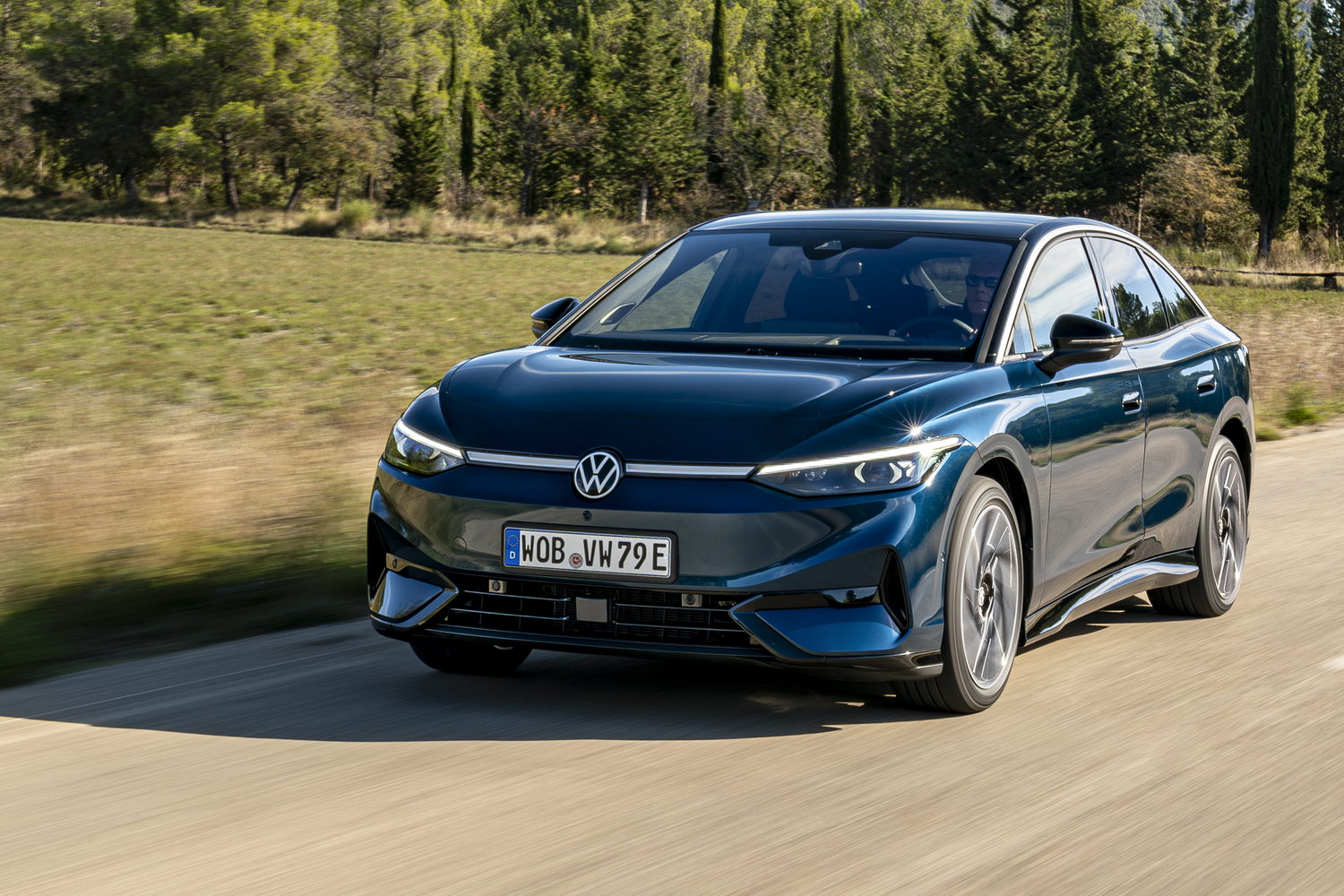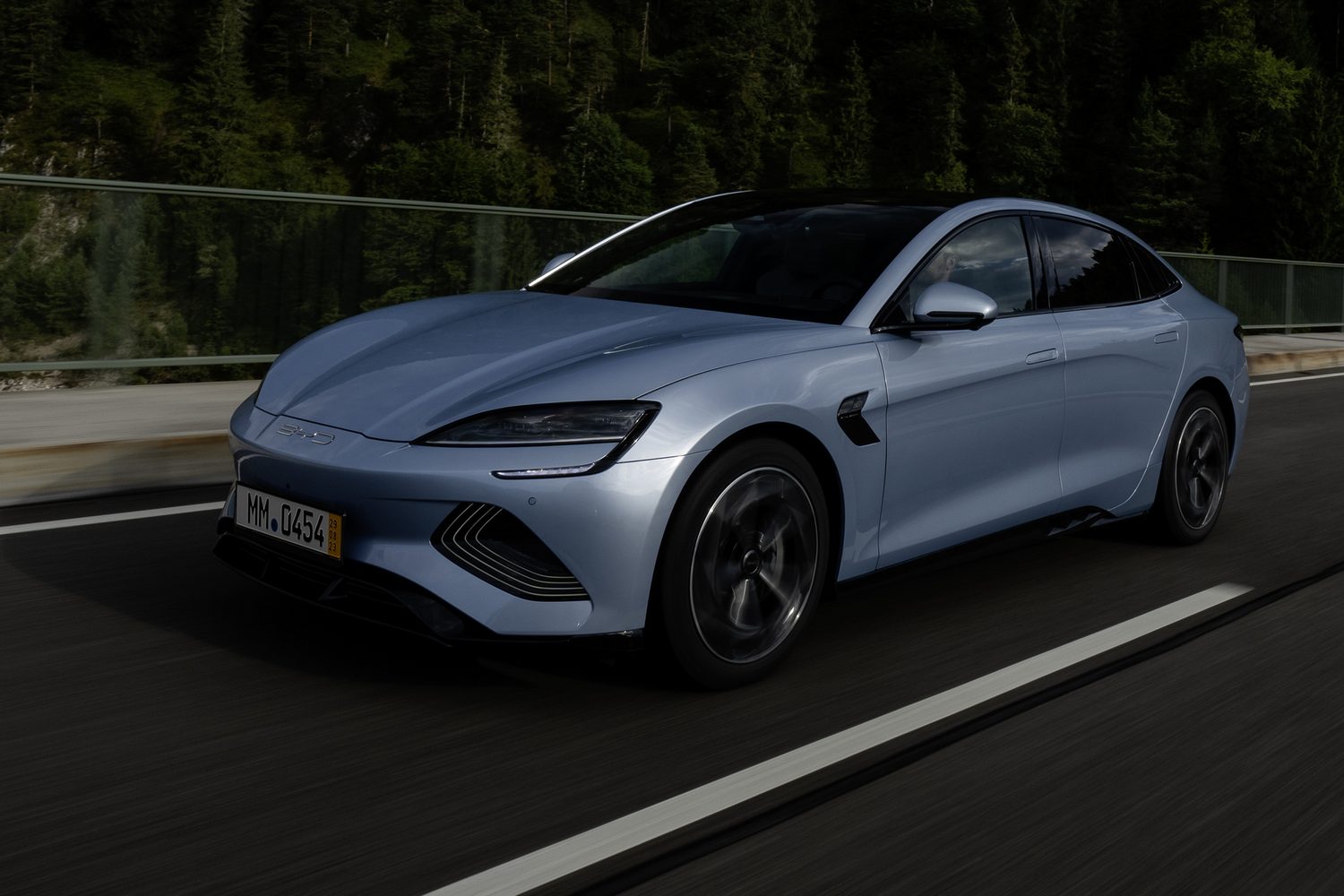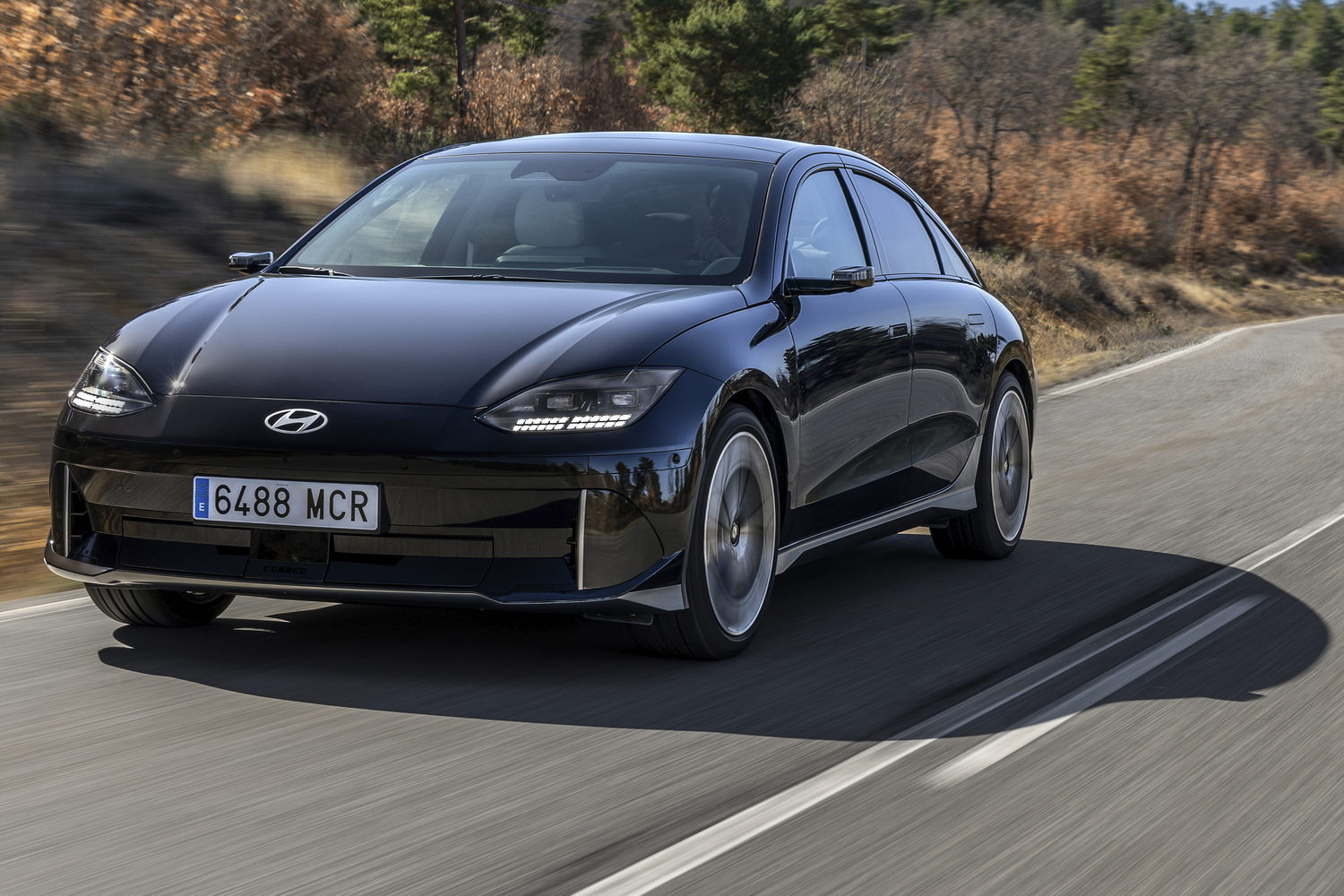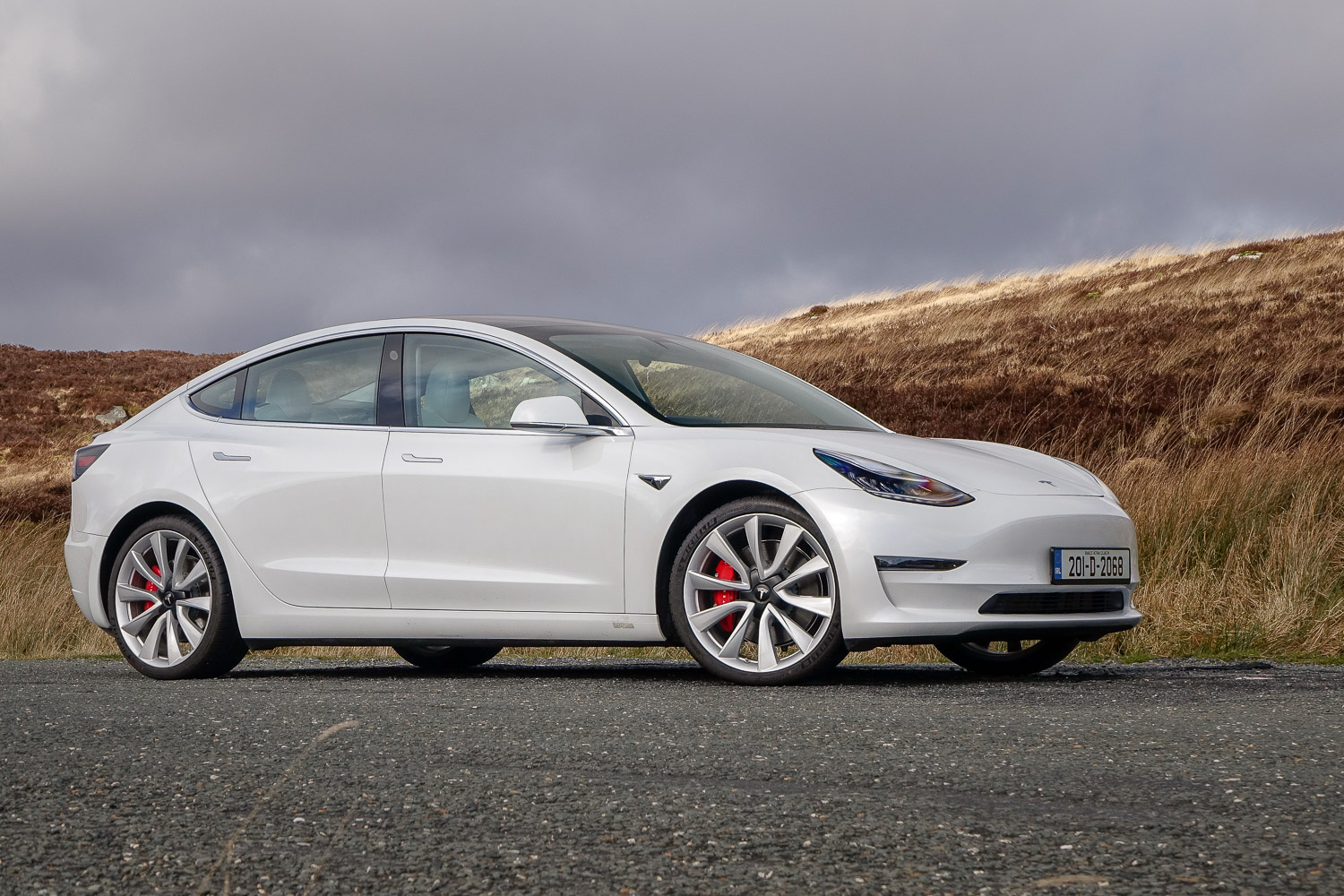Having given us an electric hatchback, SUVs and even an MPV, it's now time for Volkswagen to bring a battery-powered saloon to market. Enter the VW ID.7. The new flagship takes over the baton from the Passat - the next generation of which will not be sold in Ireland - and arrives at a time when electric saloons are rising in popularity. Business buyers are being targeted, of course, but this is a car that families shouldn't rule out, either, and with an estate version - called the ID.7 Tourer - to follow, this car makes for a great alternative to an SUV.
In the metal
The principal factor in styling the Volkswagen ID.7 was ensuring it could move
through the air cleanly. Nonetheless, its exterior design features some familiar ID. family traits, such as the illuminated light bar that spans the front in place of a traditional grille, but the overall design is subtle and certainly less polarising than some aerodynamically-optimised cars on the market.
Measuring just under five metres in length, it has presence, and the ID.7 isn't particularly tall either, even with its 77kWh battery squeezed into the floor. In side profile, it's easier to see that the Volkswagen is a fastback rather than a traditional three-box saloon shape. Depending on specification, a contrasting silver element runs along the glasshouse to highlight the curving roof in a similar execution to that seen on the ID.5.
As with so many of the latest cars, Volkswagen is relying on aerodynamics to help keep the rear window clear, as it doesn't fit a wiper on the back of the ID.7. While we're around the back of the Volkswagen, another unusual thing that caught our attention are the rear lights. They're LED, of course, but when the car is off, they have a distinctive bright silver appearance.
Thanks to the fastback (rear hatchback) there's a generous aperture to the boot. You'll be able to get a fair bit in there as it holds 532 litres. That's marginally smaller than a Tesla Model 3's boot, but a good deal more than what the Hyundai Ioniq 6 can hold.
Dominating the dashboard is a new 15-inch touchscreen display. It has a similar shape to the screen on older ID. models, though the positive news is that the touch bar along its base where the temperature and volume sliders are now comes backlit.
During our time in the ID.7 the system performed without a hitch, demonstrating no lag to inputs or when computing navigation routes. Neatly, the mapping software not only shows where charging stations are, but how fast they are. That can be valuable information when undertaking a journey that necessitates a stop.
All ID.7 cars come with an augmented-reality head-up display as standard, which has allowed the designers to shrink down the digital instrument screen to a much smaller size. That means it fits in with the seemingly continuous ventilation panels that span the dashboard.
Volkswagen wanted to emulate the Phaeton saloon from the 2000s which was renowned for having a class-leading ventilation system. In the ID.7 that means the introduction of 'smart air vents'. These sense where heat (or cold) is building up in the cabin and automatically redirect air to that area. This can help cool or warm the cabin more efficiently and draws less energy from the battery over time.
Even though the ID.7's roof is sloped, rear passengers are well catered for in terms of headroom and the long wheelbase provides ample legroom, too.
Driving it
Volkswagen sticks with the same platform that its other electric models are built on, except for one thing: the ID.7 sees the introduction of a new electric motor on the rear axle, called APP 550. It is the highest torque output from an electric Volkswagen to date and besides outright performance, it also delivers great efficiency.
Between the smooth bodywork and that electric motor, the ID.7 can in theory manage a combined energy consumption figure of 14.1kWh/100km. During our time with the car we didn't see the trip computer reach quite as low as that in the consumption stakes.
The high torque output of the motor ensures that the Volkswagen never feels strained when moving away and roll-on acceleration is brisk but not neck-snapping quick. It's very much a balanced level of performance, complementing the more refined and comfort-oriented approach its engineers seem to have taken to the car as a whole. Refinement is the order of the day with the ID.7, and there are impressive levels of sound insulation.
The adaptive chassis control uses checks taking place one thousand times per second. A five-link rear axle setup adds to the precise handling and through faster bends, helped by the long wheelbase, the car feels reassuringly planted and stable.
Switching to the Sport setting amps up the power delivery and alters the power steering. The interior lighting switches to red as well and you do notice a heightened level of responsiveness from the car. But really, the ID.7 in this standard guise at least, seems more comfortable with remaining in its normal mode and covering ground with a touch less urgency.
Ensuring the comfort of its occupants, there are several driver assistance systems specifically aimed at taking the strain out of longer journeys. We were able to sample the Travel Assist feature which now includes an assisted lane change function. At speeds above 90km/h on the motorway when the adaptive cruise control is active, if you tap the indicator, the car will initiate a lane change. It checks its surroundings for other vehicles and once it is safe to do so, it will perform the manoeuvre. The whole operation is quite smooth, though most drivers are likely to prefer to take control of the situation for themselves.
What you get for your money
For now, the only price we have is €69,100 for the Pro model tested here. In time, the ID.7 line-up will expand to include a sportier version - badged GTX - with a higher power output, along with a larger battery option that will push the range figure beyond 700 kilometres. Volkswagen will also introduce the Tourer estate model in 2024. As the pricing and grade structures are confirmed, this section of the review will be updated.
Summary
Volkswagen has nailed the brief for the ID.7, turning out a large electric car that has plenty of refinement, mature handling and a healthy degree of comfort. With conservative looks that'll appeal to a wide cross-section of buyers, much of the ID.7's appeal will be the refinement that it delivers and the maturity of the package, while the forthcoming larger battery will boost its appeal for drivers that regularly tackle longer journeys.





































